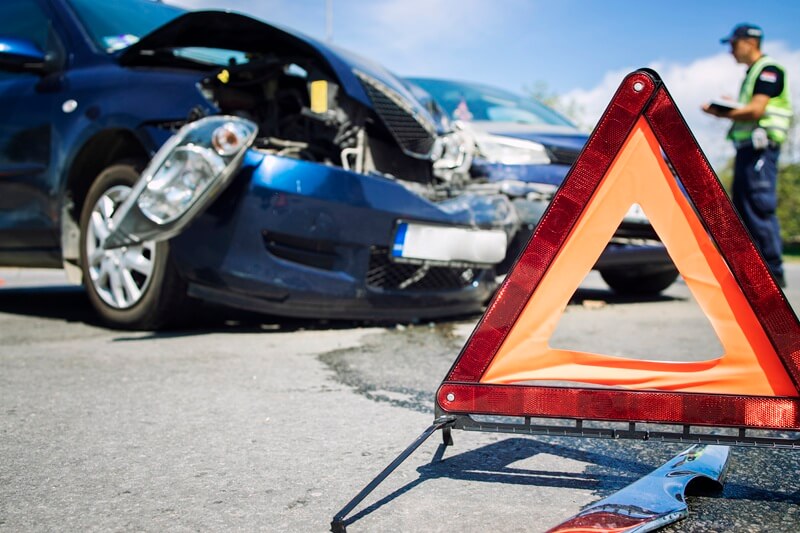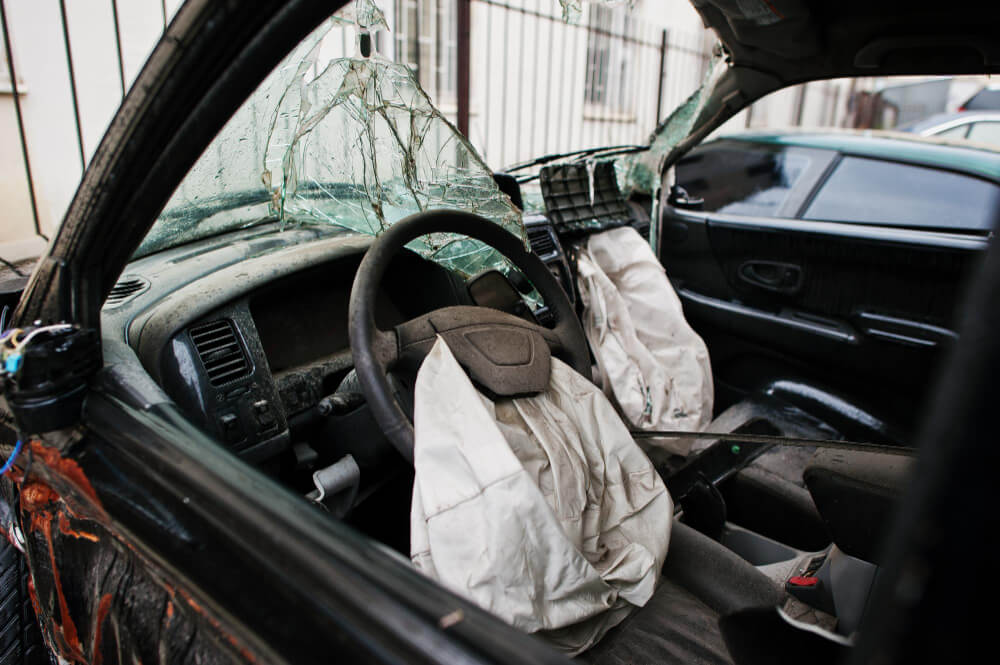Ridesharing services like Uber and Lyft have revolutionized transportation in Florida, offering convenience and accessibility to millions of residents and tourists alike. However, the rapid growth of these services has also led to a significant increase in accidents involving rideshare vehicles.
These cases present unique legal challenges, particularly concerning liability and insurance coverage. At the Jimenez Law Firm, we understand the intricacies of these complex claims and are committed to helping injured parties navigate their legal rights.
The Rise of Ridesharing Accidents in Florida
The popularity of ridesharing services has led to an uptick in accidents on Florida’s busy roads. According to recent reports, rideshare vehicles are involved in a growing number of collisions, many of which result in severe injuries or fatalities. Contributing factors include the high demand for rides, driver fatigue, and the distraction caused by rideshare apps. This trend underscores the importance of understanding liability and insurance coverage in rideshare accidents.
Key Statistics on Ridesharing Accidents
- Increase in Accidents: Studies indicate a 3% annual rise in accidents involving rideshare vehicles in major metropolitan areas in Florida.
- Injury Rates: Over 30% of rideshare-related accidents result in injuries requiring hospitalization.
- Peak Times: Accidents are more likely to occur during peak traffic hours and late-night rides.
For more insights into common accident causes, visit our Car Accidents page.
Understanding Liability in Ridesharing Accidents
Ridesharing accidents differ from traditional car accidents due to the involvement of multiple parties and insurers. Determining liability often depends on the driver’s status at the time of the accident:
- Driver Off-Duty: If the rideshare driver is not logged into the app, their personal auto insurance typically applies.
- Driver Available or Waiting for a Ride Request: In this scenario, Uber and Lyft provide limited liability coverage, usually up to $50,000 per person for bodily injury and $100,000 per accident.
- Driver En Route to Pick Up a Passenger or During a Trip: Once a ride is accepted, Uber and Lyft’s $1 million liability coverage takes effect.
Identifying the driver’s status and corresponding insurance coverage is crucial for building a strong case.
Shared Liability: When Multiple Parties Are Involved
Liability in rideshare accidents may extend beyond the driver. Potential parties include:
- Rideshare Companies: If negligence in hiring or app design contributed to the accident.
- Third-Party Drivers: In multi-vehicle collisions, other drivers’ negligence may play a role.
- Vehicle Manufacturers: If a defect in the rideshare vehicle contributed to the crash.
Learn more about how liability is determined in cases involving Passenger Injuries.
Recent Legal Developments Impacting Rideshare Liability
1. Case Law Updates
Recent Florida court cases have set important precedents for rideshare liability:
- Smith v. Uber Technologies, Inc.: This case clarified the extent to which Uber’s insurance policy applies to accidents involving rideshare drivers. The court held that Uber’s liability coverage is primary when the driver is en route to pick up a passenger or during a trip.
- Doe v. Lyft, Inc.: This decision highlighted the importance of app-based data in proving driver negligence. The court admitted GPS and app usage logs as evidence to establish liability.
2. Legislative Amendments
Florida lawmakers have introduced measures to enhance rideshare safety and accountability:
- House Bill 221: This legislation mandates stricter background checks for rideshare drivers and requires companies to maintain comprehensive insurance coverage.
- Senate Bill 66: Introduced in 2024, this bill proposes higher liability coverage limits for rideshare drivers, particularly during periods of high demand.
These legal developments aim to protect riders and ensure fair compensation for accident victims. For further details on such protections, visit our Uber and Lyft Accidents page.
Insurance Complexities in Rideshare Cases
Handling claims in rideshare accidents often involves navigating multiple insurance policies. Key challenges include:
- Coverage Disputes: Insurers may argue over which policy applies, delaying compensation for victims.
- Policy Exclusions: Some personal auto insurance policies exclude coverage for accidents occurring during rideshare activities.
- Underinsured Drivers: Despite Uber and Lyft’s coverage, victims may encounter situations where the at-fault driver’s insurance is insufficient to cover their damages.
- Coordination of Benefits: When multiple policies are involved, determining the primary and secondary coverage can be complicated.
The Role of Personal Injury Protection (PIP)
Florida’s no-fault insurance system requires drivers to carry Personal Injury Protection (PIP). However, the interaction between PIP and rideshare insurance can be confusing for victims. Understanding how PIP benefits apply is critical in ensuring timely compensation. Additional resources on Florida’s PIP system can be found on the Insurance and Third-Party Claims page.
How to Handle Claims in Rideshare Accidents
To maximize your chances of a successful claim, follow these steps:
1. Document the Scene
- Take photographs of the vehicles, injuries, and road conditions.
- Collect contact information from all parties involved, including the rideshare driver and any witnesses.
2. Seek Medical Attention
Prompt medical treatment not only ensures your well-being but also creates a record of your injuries, which is essential for your claim.
3. Report the Accident
- Notify law enforcement and file an accident report.
- Report the incident to the rideshare company through their app.
4. Preserve Evidence
- Keep copies of all medical records, bills, and correspondence with insurers.
- Retain evidence of lost wages and other economic damages.
5. Consult an Attorney
An experienced attorney can:
- Identify applicable insurance policies.
- Gather evidence, including app data and driver records.
- Negotiate with insurers to secure fair compensation.
For more information on filing claims, visit our Types of Damages page.
Tips for Riders Injured in Rideshare Accidents
If you are injured as a passenger in a rideshare vehicle, consider the following:
- Understand Your Rights: Rideshare companies owe a duty of care to their passengers. You are entitled to pursue compensation for medical expenses, lost wages, and pain and suffering.
- Know the Coverage Limits: Uber and Lyft’s $1 million liability coverage applies to passengers injured during a trip. However, securing this coverage may require extensive documentation and legal advocacy.
- Stay Informed: Monitor the progress of your claim and keep detailed records of all communications with insurers and medical providers.
- Seek Third-Party Assistance: Professional legal representation can simplify the process and ensure that your rights are fully protected. Recent industry reports, such as those from Insurance Journal, provide valuable insights into trends and challenges in rideshare claims.
Why Choose Jimenez Law Firm for Rideshare Accident Cases?
At the Jimenez Law Firm, we have a proven track record of handling complex rideshare accident cases. Our comprehensive approach includes:
- Thorough investigation of the accident.
- Analysis of app-based evidence, such as GPS logs and driver records.
- Strategic negotiation with insurers to maximize compensation.
- Advocacy in court if necessary to secure justice for our clients.
Conclusion
Ridesharing accidents present unique challenges that require a deep understanding of liability and insurance coverage. Recent legal developments in Florida underscore the importance of staying informed and seeking experienced legal representation. At the Jimenez Law Firm, we are dedicated to protecting the rights of rideshare accident victims and ensuring they receive the compensation they deserve.
If you or a loved one has been injured in a rideshare accident, contact the Jimenez Law Firm today for a free consultation. Let us guide you through this complex process and fight for the justice you deserve.




